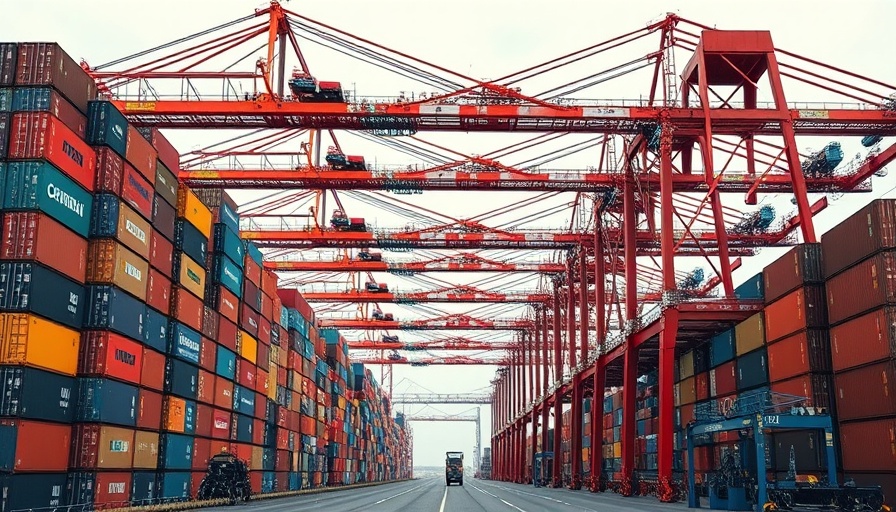
The Impact of Trump's Steel and Aluminum Tariffs
On March 12, 2025, President Donald Trump implemented a sweeping increase in tariffs on all imported steel and aluminum, raising them to a hefty 25%. This significant policy shift aims to support American manufacturing and bolster factory jobs amid ongoing economic uncertainties, despite concerns over potential inflationary pressure and the likelihood of sparking a global trade war.
Retaliation from the European Union: Immediate Consequences
In a swift response, the European Union (EU) announced that it would retaliate against the U.S. tariffs with countermeasures estimated at €26 billion (approximately $28 billion). Ursula von der Leyen, Europe's Commission President, has emphasized the EU's readiness to negotiate but asserts the need to defend its economic interests in light of U.S. aggressions. This tit-for-tat scenario highlights the increasing strains on transatlantic relations, particularly given recent tensions surrounding defense responsibilities.
A Broader Trade Landscape: Implications for Global Markets
These tariffs are not isolated measures but part of a larger strategy by the Trump administration to reformulate international trade dynamics. The imposition of these tariffs comes alongside warnings from officials in Canada and Australia, each criticizing the actions as unjustified and detrimental to global commerce. Importantly, analysts predict that these escalating trade tensions could lead to slower growth rates and increased inflation, particularly affecting consumers directly.
Insights from Economic Experts: A Closer Look at Possible Repercussions
Experts are divided on the implications of these tariffs. Proponents, including the Commerce Secretary, argue that such measures will encourage domestic investment in manufacturing sectors. However, critics contend that tariffs are effectively taxes that could hurt consumers by driving up prices. For instance, Australia's Prime Minister Anthony Albanese articulated the growing concern regarding “economic self-harm” and highlighted the risks associated with such protectionist policies.
Decisions for Investors: Navigating Uncertain Waters
For investors and business owners, the immediate challenge lies in making informed decisions amidst this tumultuous trade environment. Companies must assess the potential ramifications on supply chains, pricing strategies, and overall market confidence. With the stock market reflecting fears of a recession, cautious strategies may be advisable. This could include diversifying portfolios or considering domestic investment opportunities as the market reacts to these trade policies.
Future Predictions: What Lies Ahead?
The trajectory of U.S.-EU relations remains uncertain as countermeasures are set to take effect in early April. Economists warn that if the trade war escalates, it could provoke further retaliatory actions from other trading partners and lead to significant shifts in global supply chains. Stakeholders need to remain agile and adaptive as new tariffs can reshape market dynamics.
Conclusion: Why Awareness Matters
Given the ongoing volatility in trade policies and international relations, it is crucial for businesses and consumers alike to remain informed. Future decisions will need to weigh these developments against potential impacts on costs, availability of goods, and overall economic health. With a clear understanding of the implications of Trump's tariffs on steel and aluminum, stakeholders can better navigate the challenges and opportunities ahead.
Stay vigilant and consider how changes in trade policy may impact you, whether through cost increases in consumer goods or shifts in the job market. The global economic landscape is interconnected, and understanding these dynamics is key to making informed decisions.
 Add Row
Add Row  Add
Add 



Write A Comment